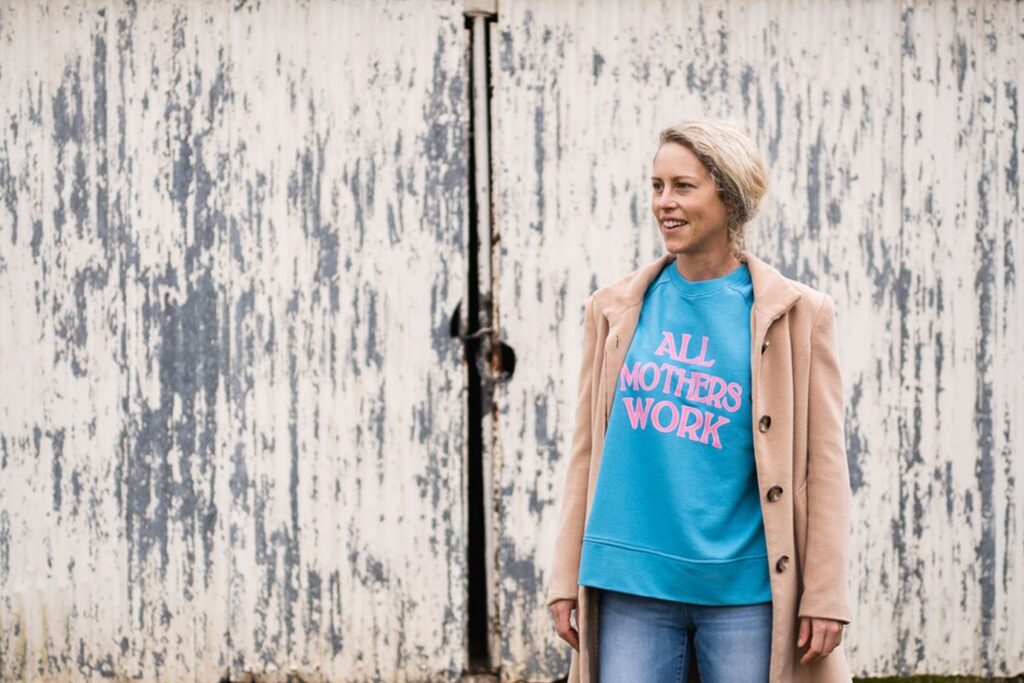In recent decades, the lives of women have been held up to the light and forensically inspected. How many hours we work, what we look like, the kind of jobs we end up in, how many kids we have, how much housework we do. These details of our lives and our choices are often illustrated in graphs on the daily news, privately mulled over, publicly debated, and referenced in research. Women have been positioned as a problem to be solved.
We over-function to the point of exhaustion in an attempt to solve the problem we have been made out to be. I don’t think this is the liberation that had been envisioned for us. We have a gross misdiagnosis on our hands – women are not the problem.
The question is not ‘How do we fix women?’ but rather ‘How do we fix the economic, social, and political systems that devalue the contribution of care?’ Once we start asking the right questions, when we recognise that women are making vital contributions both in the workplace and at home, we can start shifting attitudes and implementing policies that assign value to the whole spectrum of women’s work.
Rather than address the complexity and enormity of this problem, the way women are inherently disadvantaged in our current structures by their reproductive and care contributions, we decided to minimise the disadvantage simply by enabling women to emulate the linear career progressions of men. Women were a variable that could be controlled more easily and who were more malleable than existing power structures embedded in capitalist economies. We attempted to fix the inherent disadvantages of being a woman by minimising their reproductive and unpaid labour contributions.
We have watched on as women have struggled to fit into a paid workplace that wasn’t designed for them. The economic empowerment was enormous, but it was a hollow victory because women can never be truly free while equality is conditional. We can be no closer to addressing the root causes of inequality as long as policies and cultural expectations continue to be guided by the misdiagnosis of women as the problem.
If the real problem is our failure to adequately value care work, our failure to recognise the profound implications care work has for societal functioning, human health, and global economies, then attempting to solve the issue simply by morphing women into men can only be described as an awfully basic and misogynistic approach.
We should be asking – what do women need to be able to comfortably perform their reproductive and care labour in whatever way they choose, and also engage in paid labour if they wish?
High levels of public investment in supporting women financially while they are engaging in vital unpaid labour. A childcare subsidy that can be used for a range of care models including grandparent care, nannies, co-work creche’s and parents themselves. A childcare system that isn’t run for profit. Carer credits paid beyond Paid Parental Leave that protects caregivers from future poverty. If the importance and value of care work was better understood, we would see significant private investment in generating human capital that represents a vital input to any business or economy. We would see investment in the development of market-based mechanisms that aim to financially support the unpaid care sector that underpins the economy. This isn’t some utopian concept, these solutions are within our reach and many are already in practice around the world. With declining birth rates causing economies to slow down, measures that support care and reproductive labour will become absolutely unavoidable in the long run.
Women can and should have every opportunity but that includes the opportunity to be supported in motherhood. I’m writing this because I know our current approach to women’s liberation is leaving many women behind. I know the stress and overwhelm that is making women sick. That women are being asked to do the impossible. I’m determined to change the trajectory of this approach for my daughters so they may experience support and pride when they are doing the most important job in the world.
The idea that caring for others isn’t real work, that my value was only to be found in a paid workplace, has been the single greatest challenge of being a mother. It has undermined my daily efforts, seriously hampered my enjoyment of motherhood but also my growth as a person. With each question about when I was ‘going back to work’, with each line graph on the TV showing women’s workforce participation lagging behind men, I sank further and further into a place of confusion and despair.
It’s time to flip the entire script with three words: all mothers work.
All Mothers Work by Virginia Tapscott is out now.

